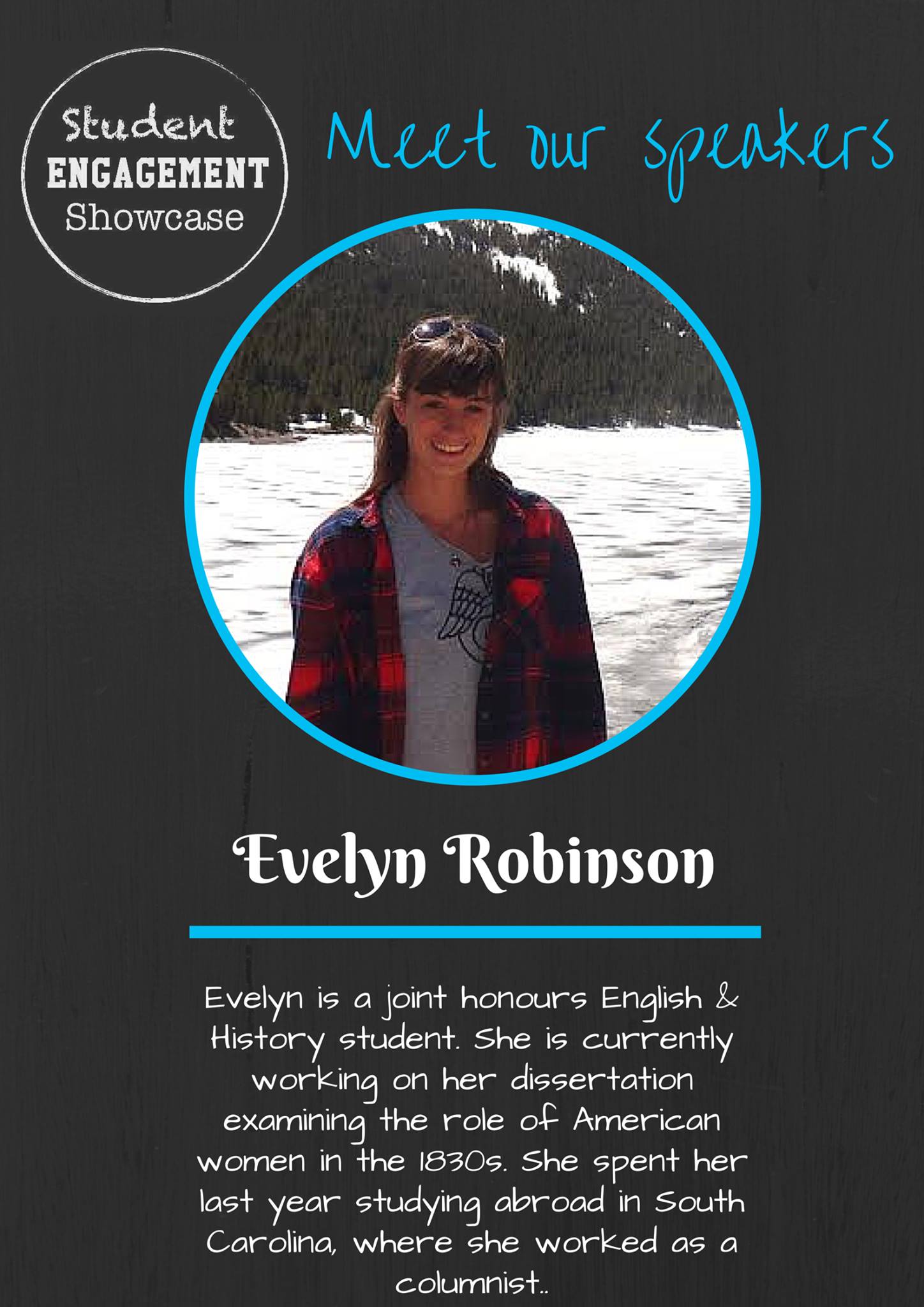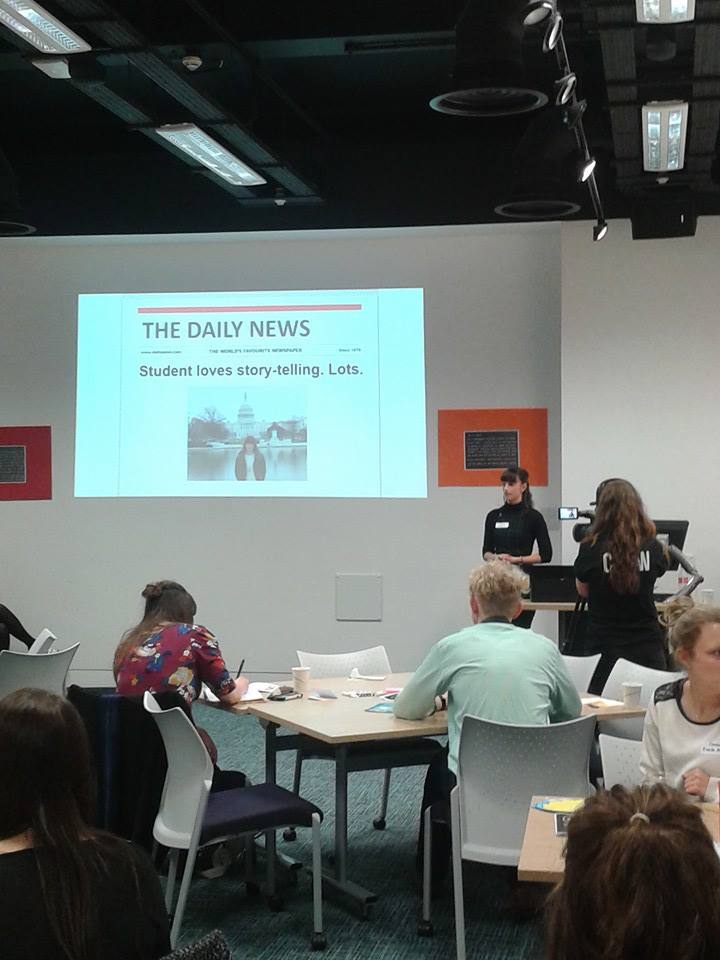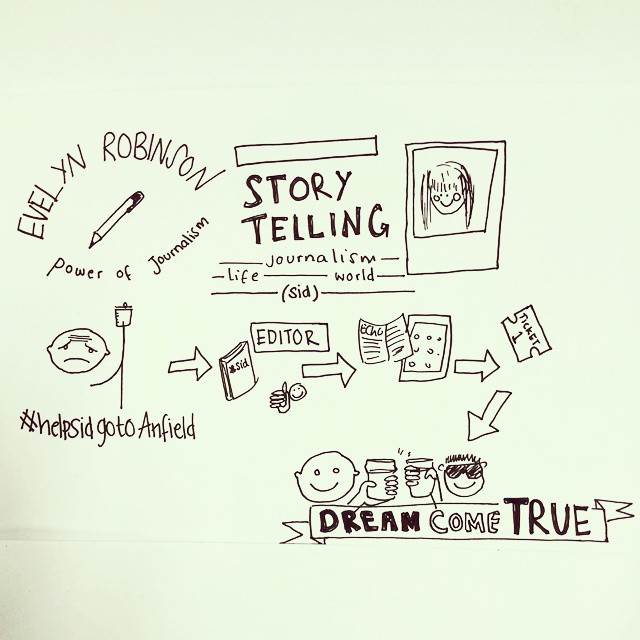This week I delivered a speech at Leeds University’s very first Student Engagement Showcase. It was an afternoon of presentations designed to highlight the many ways that Leeds students are engaged in university life outside their studies.
We heard from a variety of speakers with an array of interests, from volunteering in India, to music improvisation, to entrepreneurship, to rugby and medical ethics. My speech was about my passion for media and journalism, which has been burning steadily alongside my studies in English and History ever since my first work experience placement at my local paper in 2010. 
On hearing ‘afternoon of presentations’ you might think that the Showcase was a long string of speeches that had the crowd’s heads lolling about their shoulders. But the speeches weren’t merely factual regurgitation- they were inspiring, entertaining and heart-warming narratives, written with the sole purpose of sharing unique and untold stories.
Prior to the event, when the showcase team had selected each speaker, we attended a training session led by artist and professional speaker Ivor Tymchak, who has been making (tidal) waves of creative impact lately in Yorkshire. Ivor is the co-founder of indie phenomenon ‘Bettakultcha’, a cultural event in Leeds, Bradford and Huddersfield that invites people to deliver presentations about their passions.
But there’s a catch- all presentations must be five minutes exactly, consisting of 20 slides lasting 15 seconds each. All slides must move automatically on a timer- and the crux of the idea is that all presentations must tell a story. Forget all your one-dimensional presentation styles like describing, explaining and listing- and start thinking more along the lines of engaging, exchanging and inspiring.
So what did we learn from Ivor? Listening to him bestow his public speaking wisdom took me on a journey back through all the embarrassing presentation mishaps of my past. The first thing he focussed on was that presentations are a two-way experience. Not only do you have to think about getting the bare bones of your presentation right, but you also have to remember that the audience will only relax at your discretion. “If you feel awkward and nervous, the audience will feel awkward and nervous.”
He also told us not to pretend to be someone we aren’t, as audiences have a natural intuition and will be able to see right through it. So rather than spend an entire evening watching Ted talks and deciding that you’re going to adopt a different accent or start using an array of fancy hand gestures, try focussing on what makes you unique, and whatever that thing is- nourish it.
Something I’d never considered before was to remember to make your presentation human. Don’t let the podium, the microphone or the spotlight go to your head and remember that you’re just like the audience. They’re much more likely to relax if you talk about relatable or humbling experiences- or even the times that you failed. 
But the ultimate piece of advice was to speak from the heart. Think about why you’re passionate about your topic in the first place. Why do you care about it, why is it important, why is it pressing? Think about the many reasons why you are emotionally attached to your passion and share them.
As I thought back over the various speeches I’ve listened to in the past, this last piece of advice immediately made sense. It reminded me of sitting in the audience at World Merit Day 2014, when I was moved to tears by a speech from Hillsborough disaster campaigner, Margaret Aspinall.
Margaret lost her son James in the Hillsborough disaster of 1989 and has campaigned for truth and justice for the last 25 years. The weight of the journey she’d already endured, the enormity of the path ahead and an unwavering determination to carry on the fight were articulated loud and clear with every word she spoke.
I didn’t give her a standing ovation because I thought she was well rehearsed, because she was especially articulate, or because she used just the right amount of triplets. I gave her a standing ovation because she had moved me. I was roused from my seat because I’d forgotten I was listening to a speech at all. I wasn’t hearing a speech: I was listening to Margaret and her story.
I’ve been writing and blogging for a lot longer than I’ve been public speaking. But what Ivor helped me realise is that what unites the brilliance of the written and spoken word is very simple. As Sir Philip Sydney once said, ‘Look in thy heart and write.’ The next time I’ll be taking to the stage, I’ll remember to look to my heart for inspiration before opening my mouth. 







Leave a Reply